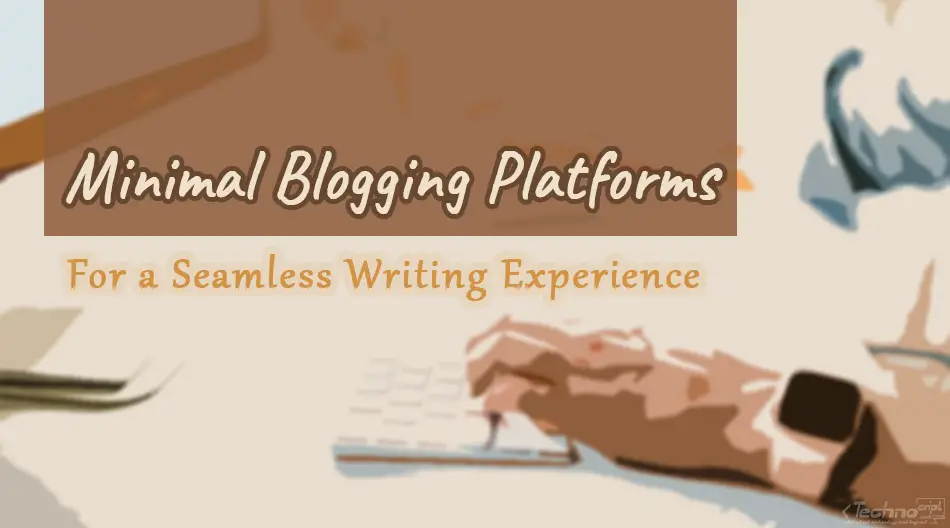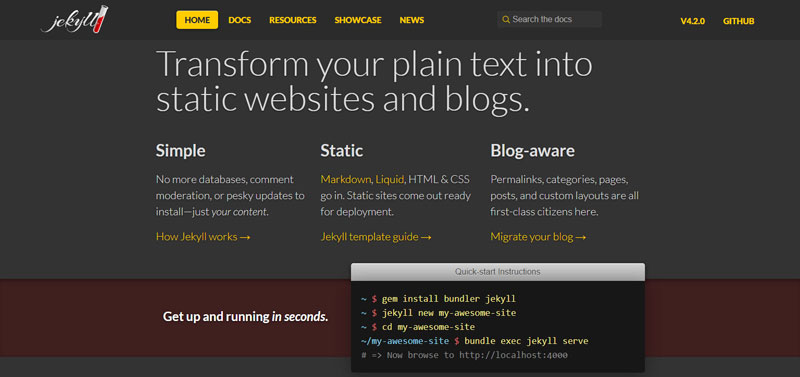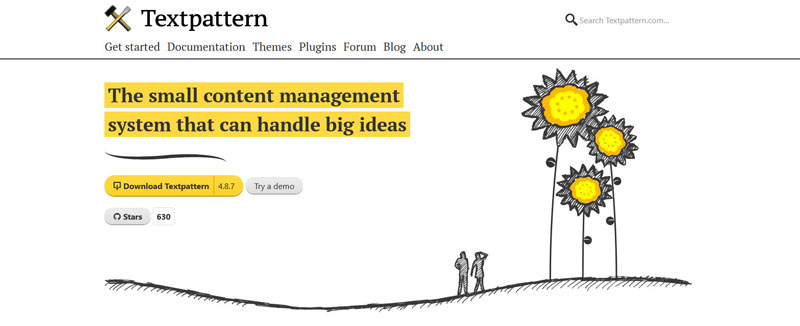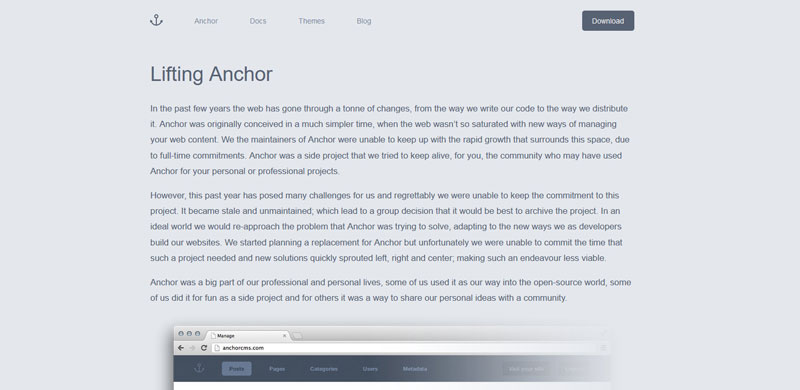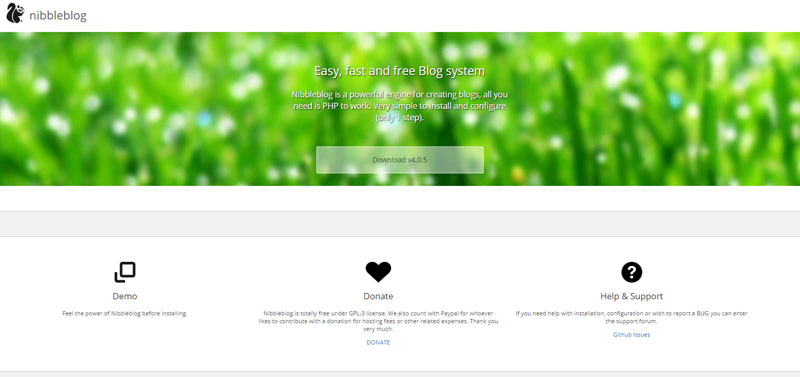Many blogging platforms, particularly the most well-known ones, come with pretty advanced tools to provide a rich content management experience. That being so, instead of focusing on blogging, they act as complete web content management systems that help build almost fully-fledged websites.
In some cases, users don’t necessarily require comprehensive systems to publish and manage their posts. Instead, they would prefer minimal and lightweight tools with essential features and specific blogging capabilities.
There are various lightweight content management systems that are geared toward pure blogging purposes. Some of them are originally designed to be blog-aware tools, while others come with complementary website-building features.
This article highlights the top 5 lightweight and minimal blogging platforms for an easy and straightforward blogging experience.
1. Jekyll
Jekyll is a minimal blog-aware platform and static site generator. It’s designed to create personal projects or organization sites. It’s basically a static site generator that helps to create static site files, which can be hosted as HTML files on any website.
Jekyll is a free and open-source tool distributed under the MIT license. This tool is minimal blogging software that doesn’t utilize a database engine. Thus, it has no server maintenance, and no regular updates are needed.
As a basic static site generator, sites built in Jekyll tend to be extremely fast and can be hosted for free on GitHub Pages. It also supports loading content from YAML, JSON, CSV, and TSV files.
On the other hand, Jekyll has a relatively small community and supports only limited themes and plugins. Moreover, sometimes websites built in Jekyll seem to be not easy to update and maintain for non-technical users.
2. Textpattern
Textpattern is a minimal, fast, and easy-to-use blogging platform. Although it’s an open-source cms often seen as a weblogging tool, it aims to be a general-purpose content management system and is suitable for deployment in many contexts.
Textpattern is a free and open-source solution published under the GNU General Public License Version 2 (GPLv2). It utilizes the MySQL database.
Textpattern has extensive documentation, an intuitive design, and an easy-to-use interface.
One of its drawbacks comes from lacking the concept of portable design themes, meaning that each site is unique and themes can’t be changed. Furthermore, the software has few templates and a small community.
3. Anchor CMS
Anchor CMS is a free and minimal open-source blogging management platform with lightweight features. It’s PHP-based and focuses on writing blogs.
It has a very simple and uncluttered admin interface that shows essential features, such as creating posts and pages, as well as managing comments and categories.
Anchor is an extremely lightweight content management system that weighs around 200KB. It’s an entirely free and open-source tool released under the GPL-3.0 License.
Furthermore, pages built with Anchor have faster load time and database query optimization. On the other hand, this tool has a small theme repository and does not support plugins.
Unfortunately, this software is no longer under development but is still available to download and use from its official website.
4. Dropplets
Dropplets is a minimal blogging tool developed by Jason Schuller. It’s an extremely simple markdown content management system so you just need to upload files on the hosting server.
Dropplets is a minimal blogging platform that mainly focuses on delivering a blogging solution. It’s free software based on the GPL-3.0 License.
Dropplets comes with very basic features and no database. It provides a readily easy-to-install software. It also has a few templates available that users can download from its marketplace.
5. Nibbleblog
Nibbleblog is a minimal tool for creating blogs. It’s easy to install and configure with only 1 step. This tool uses XML databases and has less than 0.5 MB in size.
Nibbleblog is free and open-source software released under the GPL license. Its features include video blogs, multilingual support, plug-in support, templates and themes, file manager, and SEO support.
On the other hand, this tool has limited options for templates and themes with a small supportive community.
Finally, in this article, we concluded the best and most-known minimal blogging platforms available to download and use for free. Obviously, most of them don’t have variations of plugins and extensions, and neither they have wide supportive communities. However, they are still able to provide the basic level of blogging features and capabilities.

